1 year recap: My solo entrepreneur journey full of ups and downs
Goals & guidelines for my journey
When I finally decided to make the leap and quit my job at Meta 12 months ago, I initially laid out a set of goals and guidelines to aim for as I endeavored on my own. Before I quit, I got tons of advice on how to do this, do that, etc., but honestly I liked the loose structure and broad goals I had set for myself at the time.
- Build & ship products fast
- Use latest & greatest AI models and other emerging technologies
- Launch at least one quality iOS app with high polish
- Launch at least one quality web app with high polish
- Share my journey on Twitter/X to learn, grow, connect with others
I didn't have any $ goals, follower goals, or user growth/acquisition goals. I was hoping those would be a byproduct of doing my best work and investing in the right areas. I've always thrived on learning on the go: solving problem after problem, diving into each problem space with a curious mind and executing to the best of my ability. It's how I fell in love with building software when I was younger: one step at a time... curiosity and passion can get you quite far!
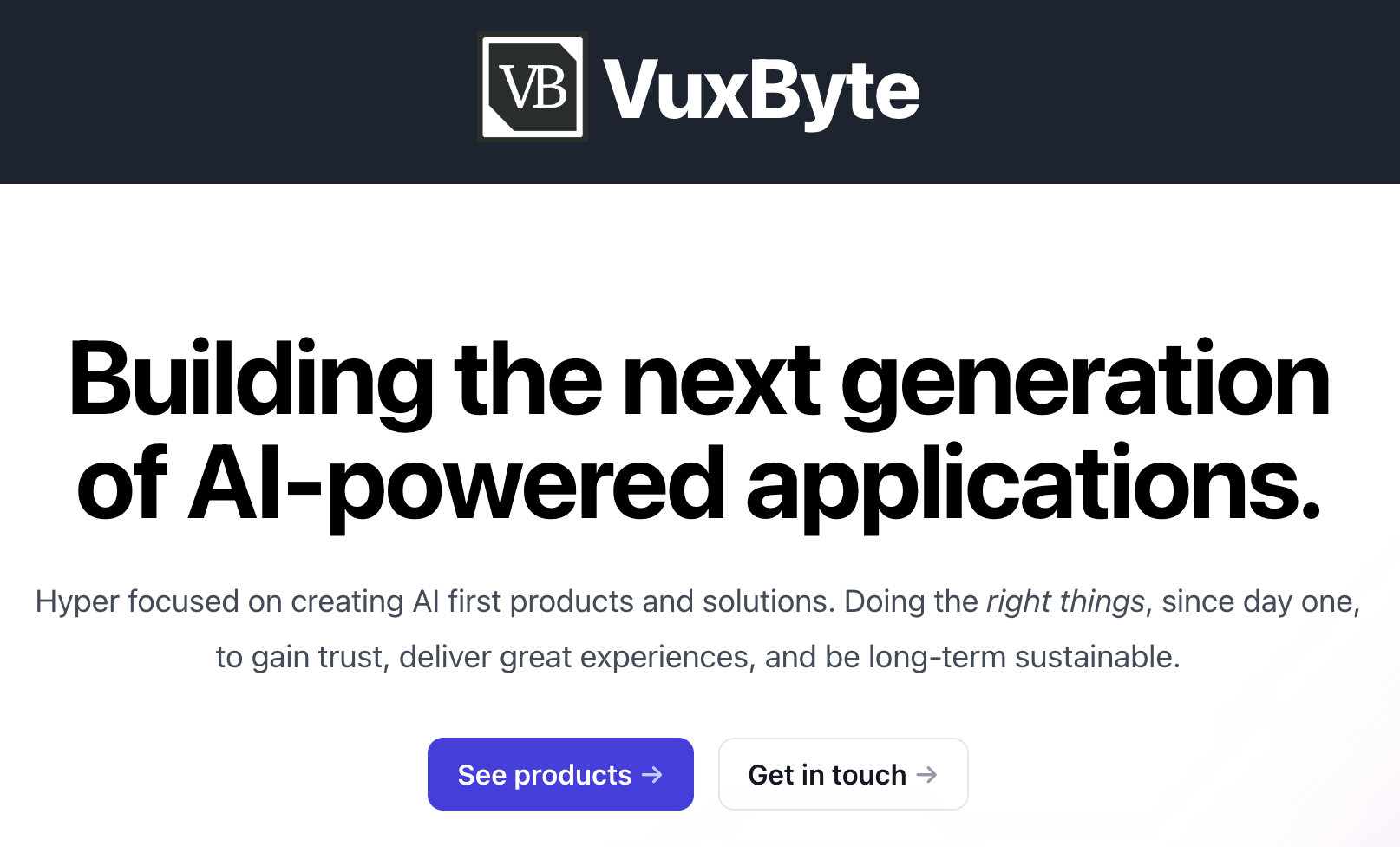
Time boxing my journey and company funding
I wanted to give myself at least 12 months to figure it out. Is that enough time? Eh, but it was the timeline I was comfortable with. I bootstrapped my own company so I didn't have investor money to lean on when money was not flowing in like it used to be. Due to that, I saved up a large chunk of cash to afford my life (rent, food, monthly expenses) for the next 12 months. Could I have gone the funding/VC route? Maybe... I think it would have shifted the ideas I had worked on in the past 12 months, and maybe even for the better, but hard to say how things would have panned out differently looking back.

Exit criteria: if things went well, what happens?
My "exit criteria" was a bit nebulous: was this going to be my forever job, a large exit buyout by a bigger company, or something that has a shorter life span? I didn't want to dictate what would become of my business, so I did the best I could and built software people enjoyed. If things didn't work out, which when you build a company usually ends up being the case, I could always go try to find a job again as a software engineer at a big tech company / startup. The allure of me quitting had been in the back burner for some time before I quit, I just didn't know when.
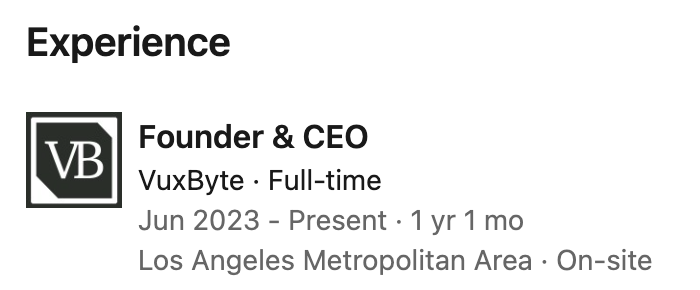
Autonomy and decision making as a one person company
As I started on my journey, my excitement and energy couldn't be higher. When you think about something for a long time, and finally make the move, the relief is huge and you're onto your next set of problems. I was invigorated to be back building my own software, under my own time & my own name, being my own boss & shipping with a high quality bar. All decisions were made by me and only me. This was great... but it was also taxing. Making decisions at a company was working with others, drafting proposals, discussing them, and finally making a move. On your own, it's a daily flurry of 50 decisions to make, all important, ... yet all not that important, who knows which one will make your product take off or flop!
Emotional rollercoaster
My emotional state in the beginning was definitely on a high as well. I had many moments where I stopped to think in the first month: "Damn this is sooo fun". Last month I was coding for a company, and I do love coding, but being employed anywhere there will be things you don't like. In a brief decisive moment, I had discarded all the things I didn't love and moved to things I did love. But with everything in life, it came with tradeoffs! FWIW, there were lots of things at Meta I did enjoy, the people for one!
Each product launch had an insane build up (months). At the end of the day launching was partly for fun, but obviously to make money and continue my business for the long term. When things didn't go well, and I had some high expectations, it felt pretty bad. The launch moments and weeks following made me question lots of things: Am I good enough? Is this app not great? How did I miss the mark so much? Everything becomes a bit more personal and you feel it heavier when it's all on you.
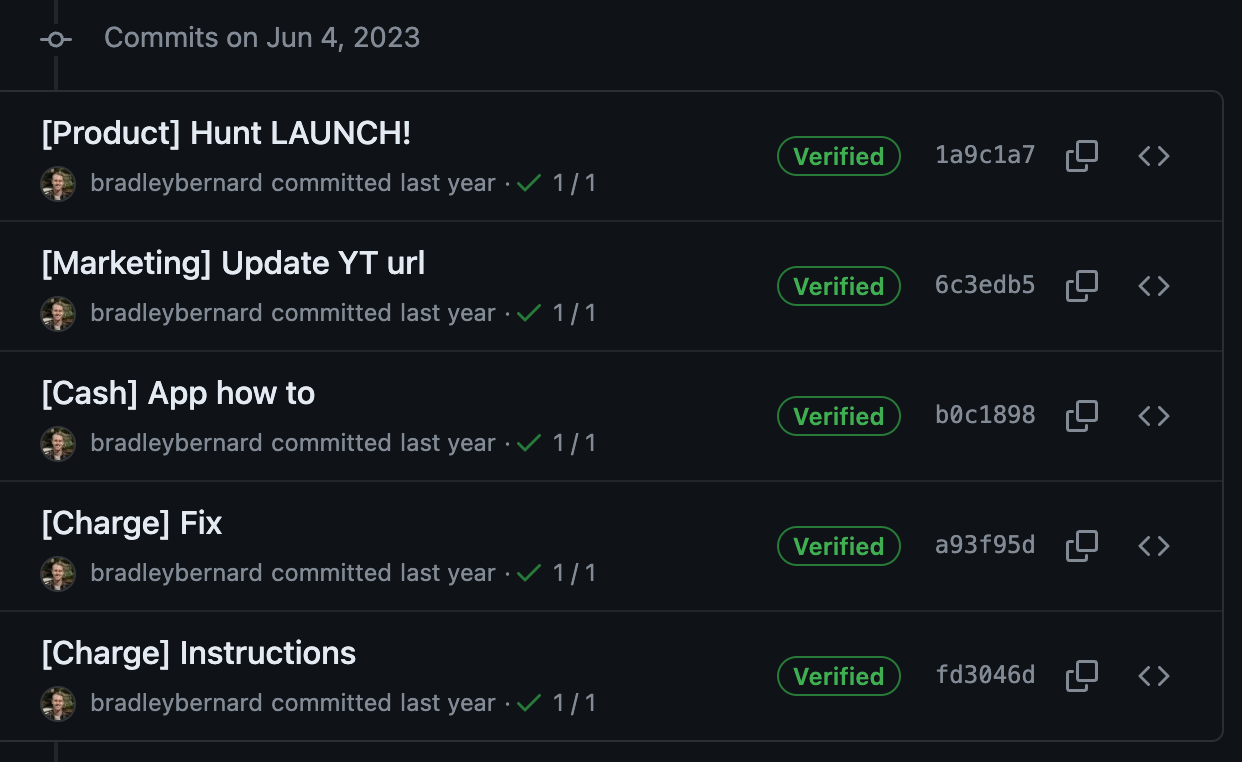
It's definitely more lonely on the "solopreneur" grind. I was so used to having coworkers to talk to, at will, that when I was settled in (3+ months solo), it was feeling a bit isolating: if I had problems or challenges, there weren't people to bounce ideas off of: technical or product. Yes, I had friends and family to talk to on the daily, but when you pour a lot of yourself into your company, you don't want to be that guy who only talks about himself and asks others for help on his own stuff, so I didn't want to bother too many people with my company's issues. I felt this up & down over my 12 months: sometimes heavily, other times not as much.
Finances, app monetization, and user expectations
I had saved up a decent amount of money to not put the pressure on myself to be making good money on day 1, which gave me a safety blanket. It held for a long while, but over time, the financial pressure became much more real and top of mind. In the first month I literally had zero thoughts about making money, wow what a life looking back on it!
Fast forward to month 8, 9, & 10 it was all I thought about on a daily basis: how can I monetize this, add a paid feature for that, you name it. It was ingrained in my daily life too: I was holding onto money more tightly since I wasn't anywhere close to making the same amount of money I was previously, and my company savings were being drained on a monthly basis. Overall, a stressful experience that I didn't expect to have such a grip on my daily coding life: I obviously wanted to make money, but it wasn't like before where I could write code and a paycheck came in, I had to make a profitable software product!
My gamble & hope of making good software and expecting people to pay wasn't really working: I think my software was good, but the product spaces I got into and the customer expectations for the products made it hard to monetize successfully at the scale I wanted. I'm also not an expert on monetization either.
With SplitMyExpenses, I competed with Splitwise, which was historically giving LOTS for free, so I had felt similar pressure to give a lot for free... impossible to monetize well in that space. Splitwise recently put up a paywall, so it's a clear sign that the "winner" in the bill splitting space is struggling, at least to some degree.
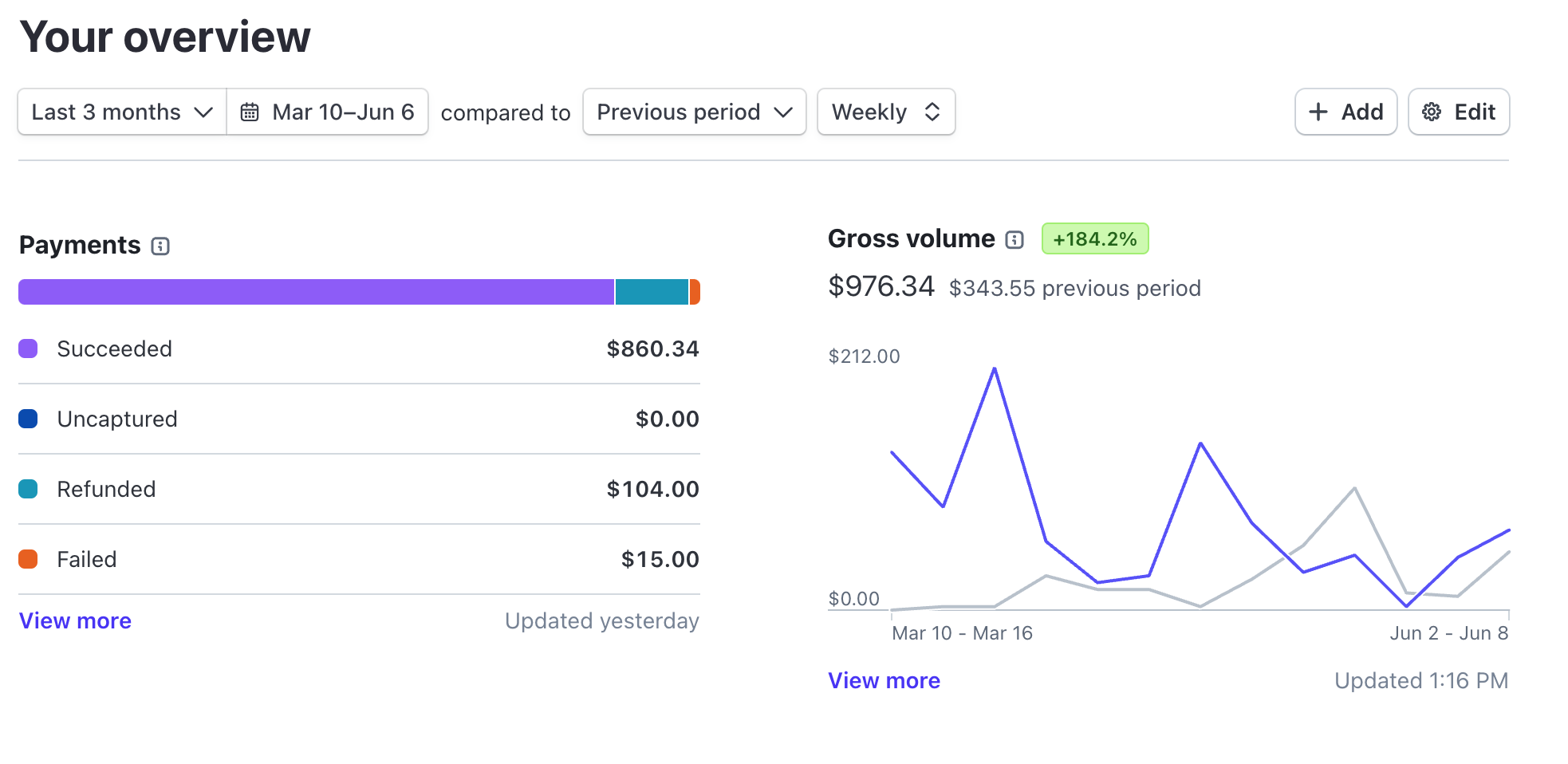
For Chatty Butler, the timing was thwarted: OpenAI released their official ChatGPT right before I launched. It took the internet by storm and fizzled my excitement a bit before launch, but I had already spent so much time building (3 months out of my 12 month allocation) that I had to release it anyways, and was excited to do so, but it had a different taste & expectation in my mind. Monetization there was abysmal since other apps dominated the market, it was so crowded. More lessons learned!
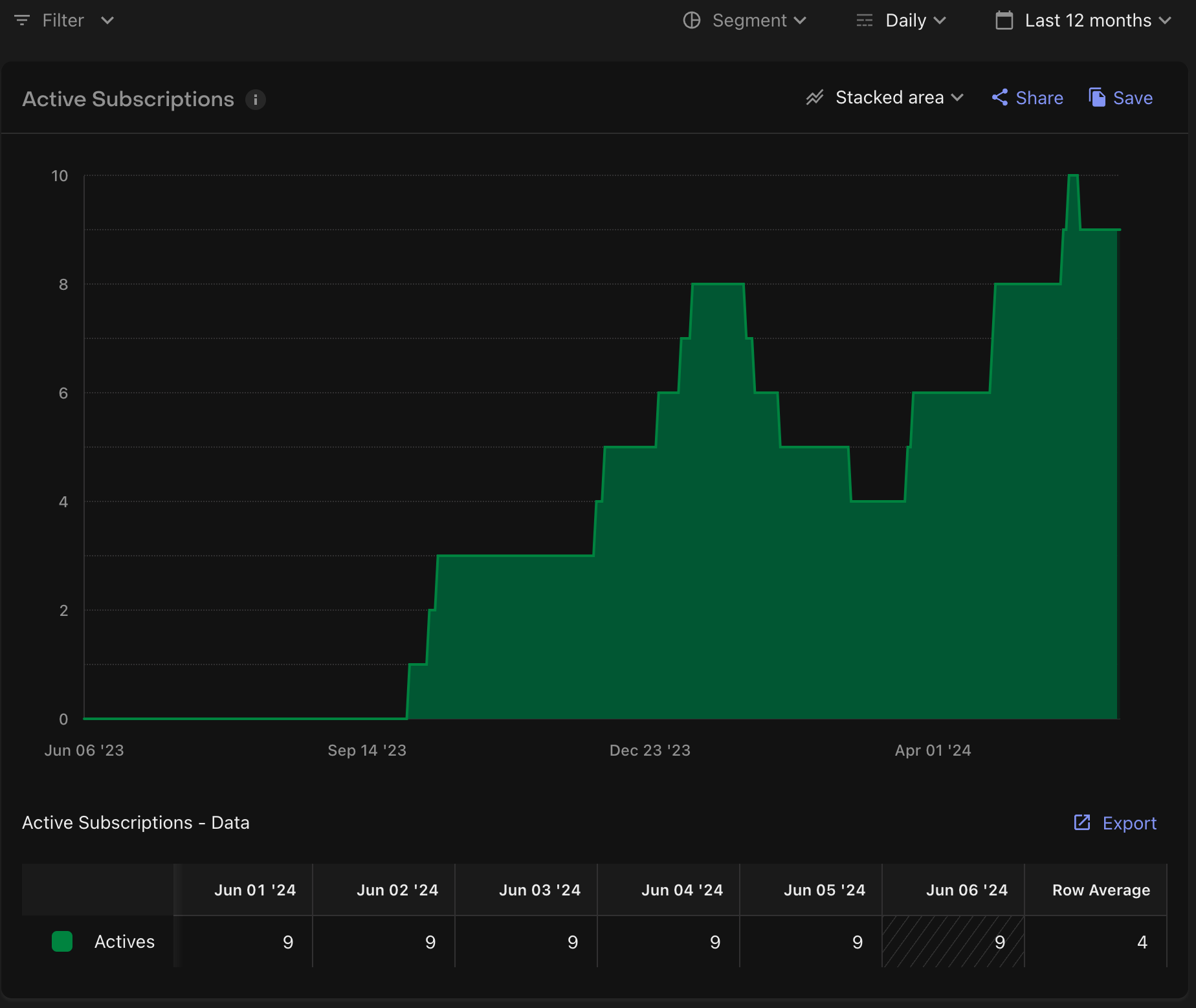
Providing customer support and live chat
I was the front line, answering all questions and comments. When I started out, I encouraged a lot of user feedback, almost too much. I made it really easy to get in touch with me, which helped me build a great product. But, as time went on, it became overwhelming. Especially as I went into monetization mode and focused only on making $$: support didn't really "help" the company bottom line, as most of the folks asking questions were free users, but you can't blame them, my free user percentage is probably 99%!
I tried prioritizing support for paid users, but it never worked. I go on and off about answering support tickets because it doesn't feel productive as an engineer at heart. Time boxing to 1 hour per day to answer things, or just letting it build up and then answering in bulk, but it always feels like I'm letting my users down to let an inquiry sit for two weeks before responding. Balancing that is difficult.
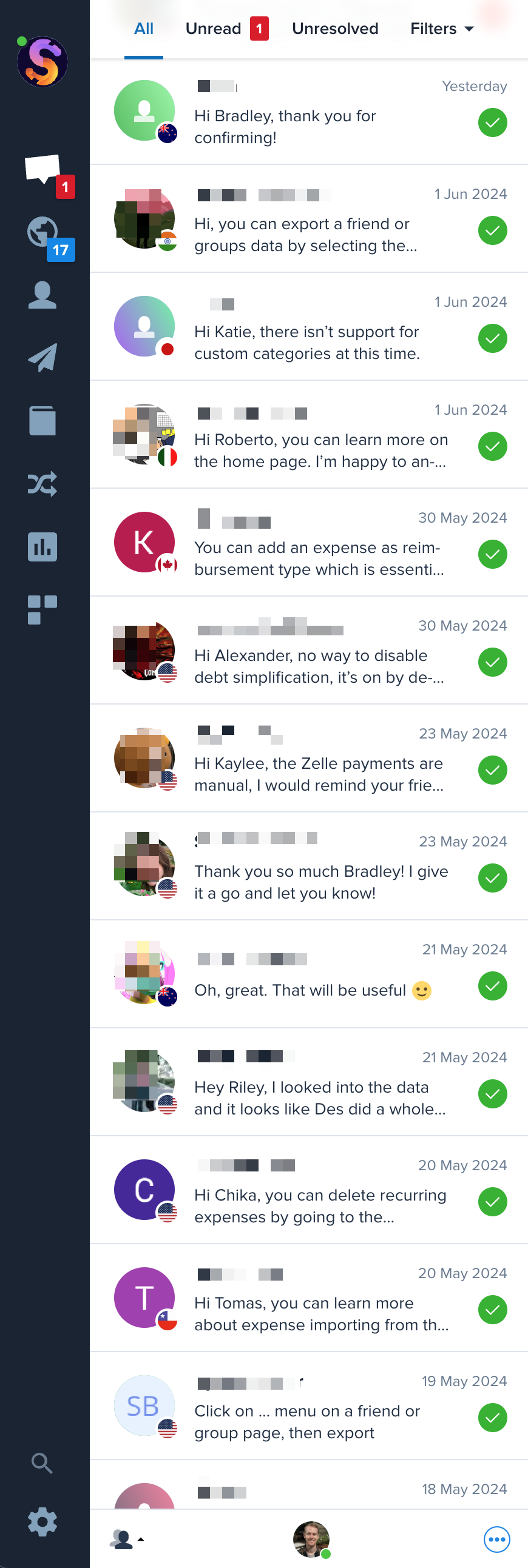
Timeline: Month 1, Launch 1
June 2023
Wow, the first month was insane! I had lots of life events happen at the same time, so that was fun, but for the business it was build & ship time! I had launched SplitMyExpenses v1 (June 5, 2023) on my first day self employed after I quit! It was a high point since I was dying to do my own thing and have fun with it, publishing under my own (company) name again.
To my dismay the product launch kinda flopped... ProductHunt was not what I expected and hoped for, it's more for hype than it is for actual users. Lots of folks reached out to me over DM to artificially boost my PH launch with votes and stuff for money... gross! You live and you learn.
My goal for SME was to launch it and forget about it, but boy how that changed... I'll get back to this later.
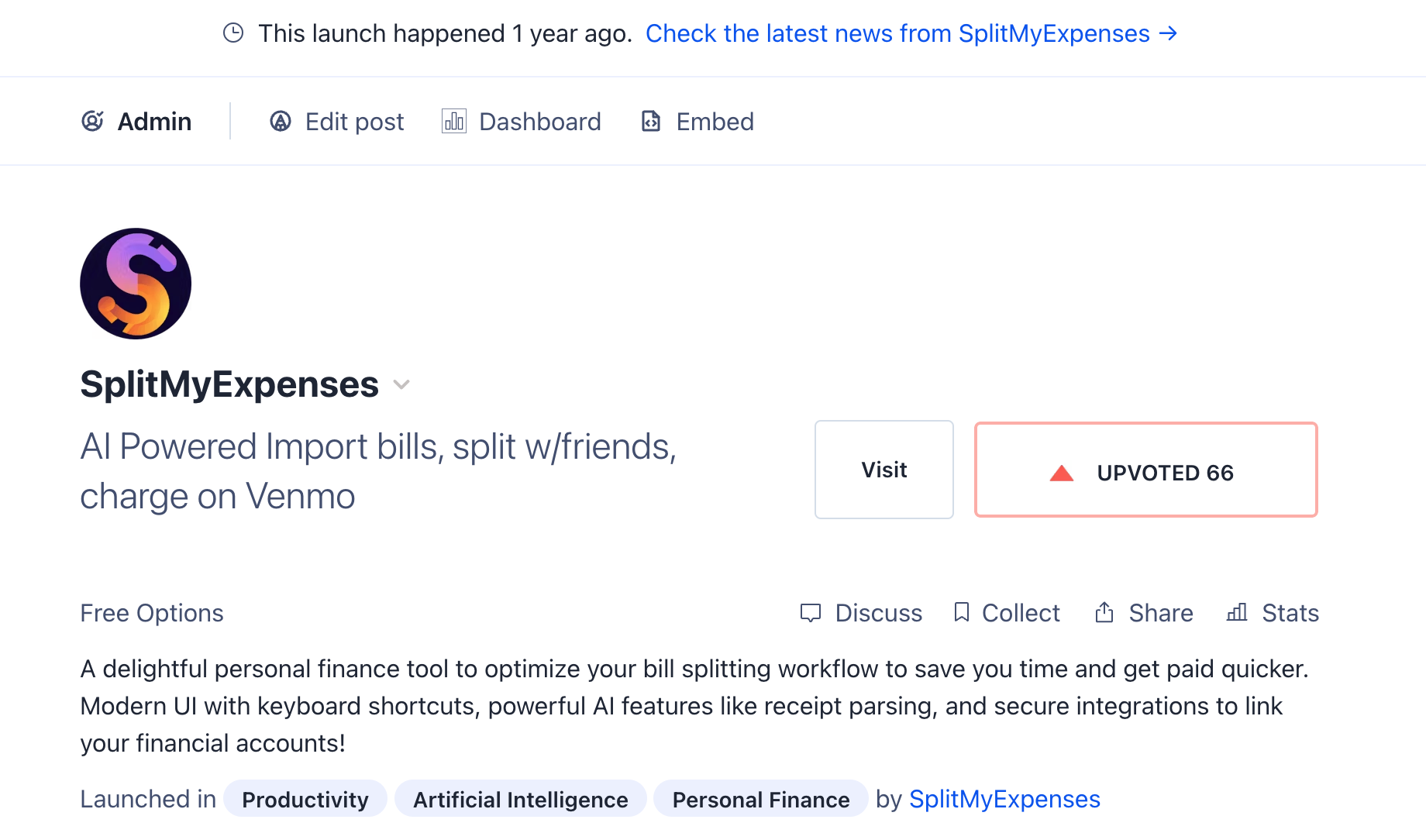
Timeline Month 2-4, Launch 2
July, Aug, Sept 2023
The next few months were coding mode: after launch of SME, I immediately jumped head-first into SwiftUI and built out my iOS app: Chatty Butler. It was before OpenAI had an official iOS app on the Apple App Store, so I went hard to build out a quality AI chat app. I spent ~3 months building and iterating on the full stack codebase: backend in Laravel & frontend in SwiftUI. I then launched on the app store after a tumultuous review process with back & forth from Apple.
I'm proud that I didn't take any shortcuts. I wanted to ship a quality iOS app, if not just for own pride:
- Google/Apple sign in, email sign in
- Light/dark mode, shimmer loading states
- Animations, haptics, FaceID lock
- Streaming text, streaming audio, recording audio
- In-app subscriptions, paywalls, remote configuration
- ... you name it, it was polished!
I built in public on Twitter for the first time and had fun sharing my code, mock ups, and tips and tricks. I had hoped to get more attention but the Twitter algorithm seems to favor spicy controversial takes, and I was just publishing what I thought was cool.
After I launched Chatty Butler on ProductHunt and App Store, I got so much feedback to build SplitMyExpenses with group support (similar to Splitwise), that I had to jump on it. I was a bit exhausted about the grind on Chatty but it was onto the next bet.
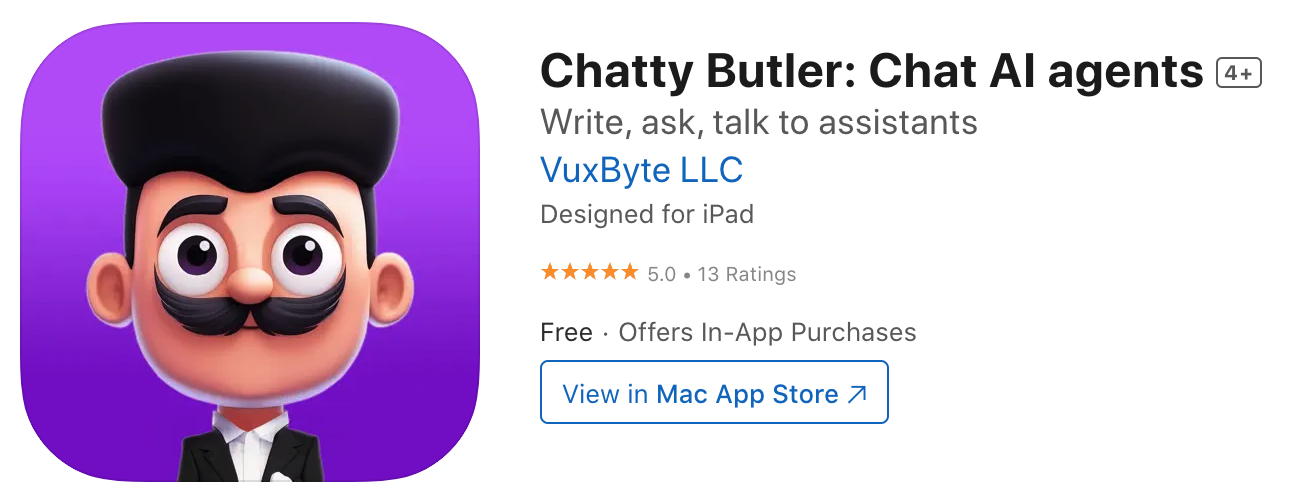
Timeline Month 4-6, Launch 3
Oct, Nov, Dec 2023
I went back into the coding dungeon and worked HARD on building out group support on SplitMyExpenses. It was a complete rewrite: gutted all my database tables, core logic, UI code, etc. to make room for a new mental model of computing balances between users & groups of users and made sure it was scalable. I had many users asking for it, even from my small user base, that I knew it would be a good addition, but it came with an insane cost...
As I was building in public with Chatty Butler on Twitter, I continued the journey for the SME v2 launch. I had two launches under my belt so far, and I didn't want to change SME, since I originally built it for my own workflow but I didn't have any great ideas I wanted to pursue for a new product, so there I was!
I was taking a gamble spending months of my time on a full re-write. It was nice since I know where I needed to go at the end of the day, but it was a grind to get there. Day in and day out of coding: chipping away at the new architecture, redesign and new UI I had to build.
I launched in December 2023 with SplitMyExpenses 2.0 on ProductHunt and things went much better than my previous two launches! I ended up getting many more users per day for the next few weeks, so I knew it had potential. I was feeling pretty good about it! What is the future of SME? Would it get bought out by Splitwise? Would it take over or just have a small user base? Who knows but it's exciting :)
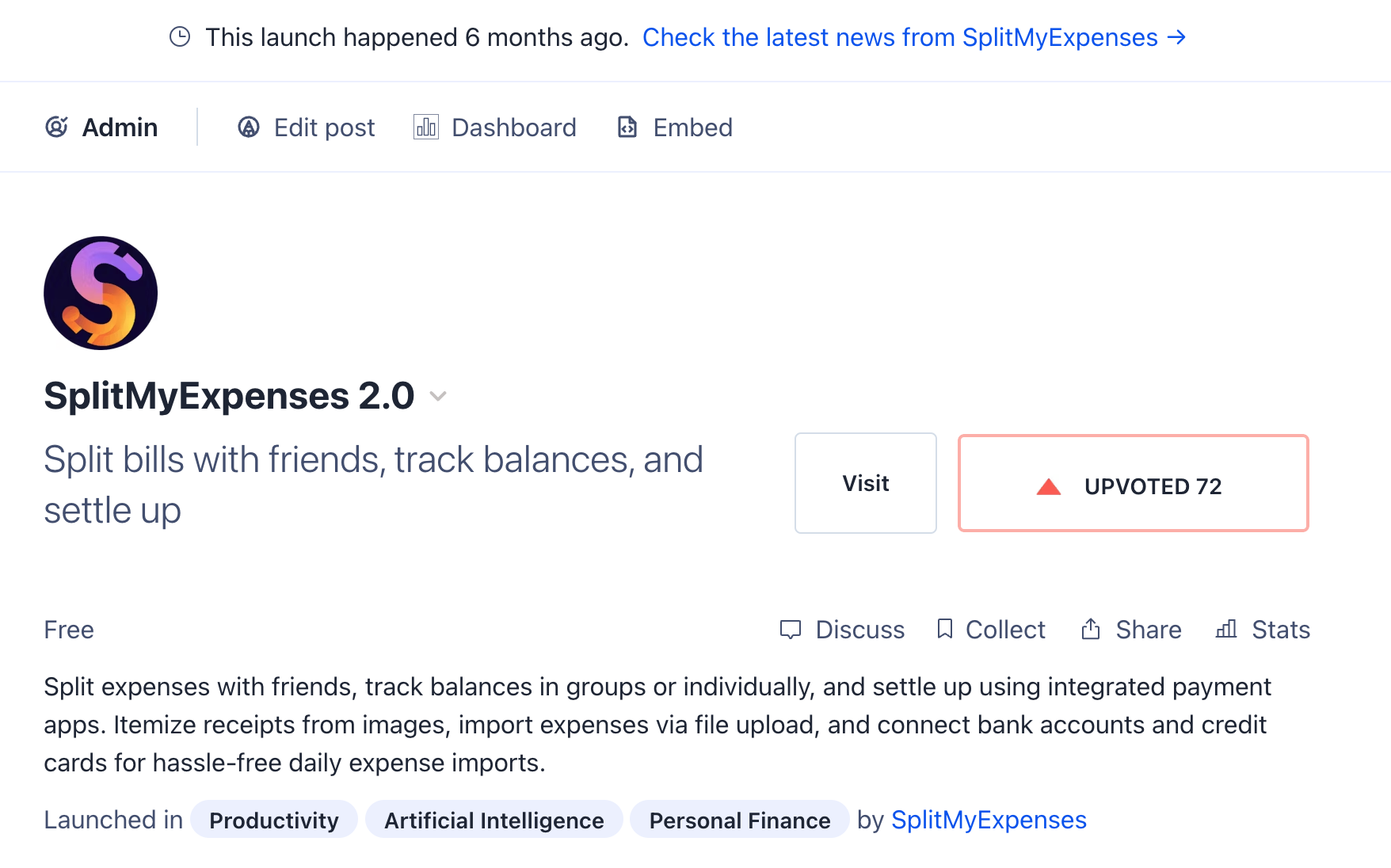
Timeline Month 7-9, focusing in
Jan, Feb, March 2024
SplitMyExpenses 2.0 was slowly taking off: and when I say taking off I mean free user acquisition! 20+ users signing up per day in January: I have something here. Then I switched to marketing / monetization mode: how can I get people to pay for it?! What features would I need to build to make it actually make money and not just collect free users?!
It was a daunting task, I had spent these 3 months going back and forth:
-
Marketing efforts (SEO, blog articles, link building, email automation)
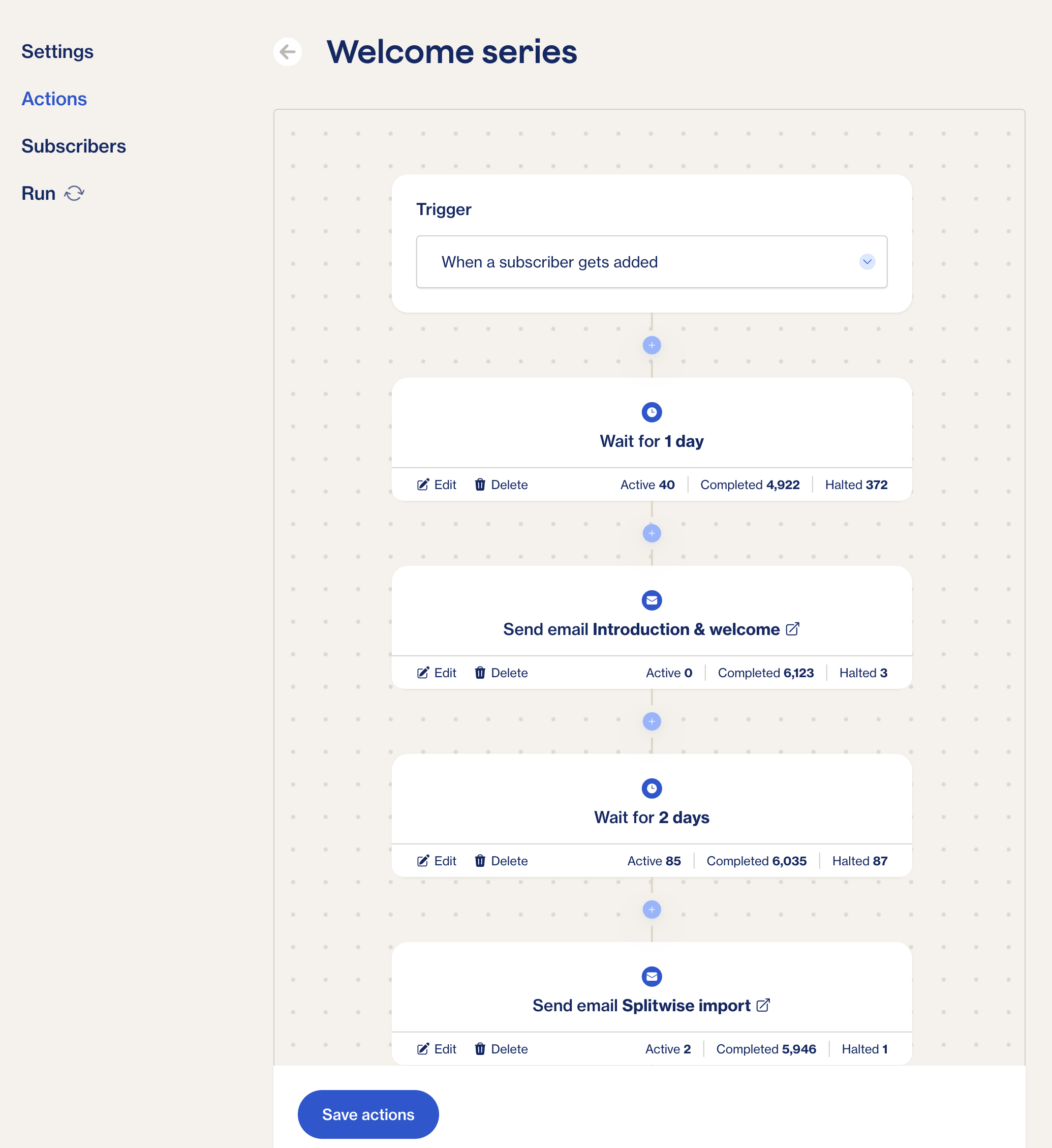
-
Building features (activity log, charts, splitwise import, recurring expenses)
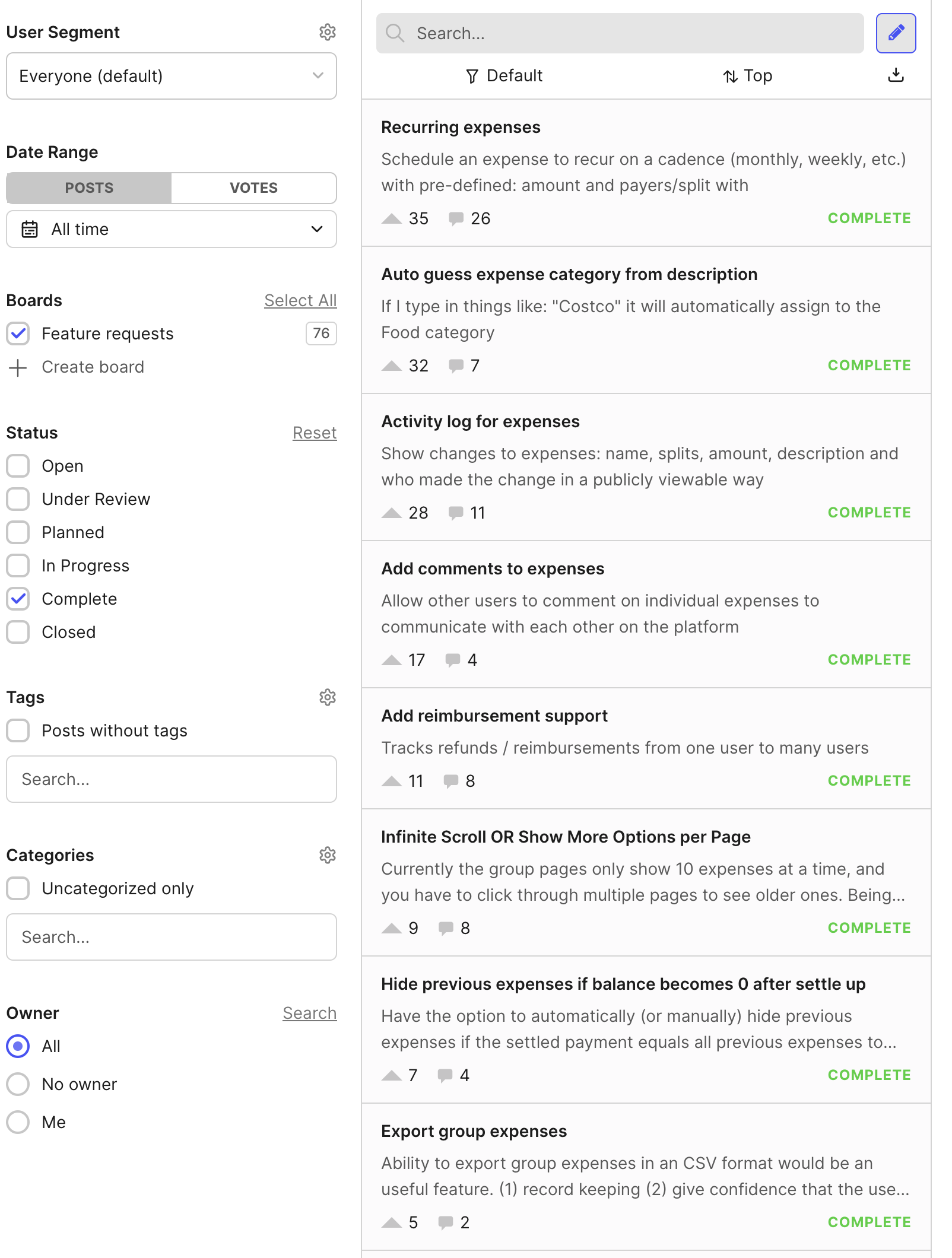
Trying to crack how I can make people pay for it, without being too aggressive (can't repeat what Splitwise did). The core of the problem was that there is a high expectation to get all these features for free, since Splitwise gave them for free. I rightfully acquired a lot of users due to their paywall shenanigans so I surely couldn't pull the same move off.
These three months embodied a phase of having a "stable" product and constantly shipping large updates to it. I was getting a increasing number of daily new free users, I only wished the product actually made money 😂

Timeline Month 10-12, mobile app in development
April, May, June 2024
I continued my efforts on the balance of monetization, marketing, and building features for SME v2. I actually completed all the big feature requests on my public feature requests board, and the only one remaining was: iOS & Android apps.
My focus on finances, profitability, and monetization struck a chord with me and this idea for the past few months, ever since it was the top of my list: how will this make me money? I can't charge money for an app on the app store, that's so old school & unscalable in terms of my costs. So what should I do? My default and long standing answer was: no!
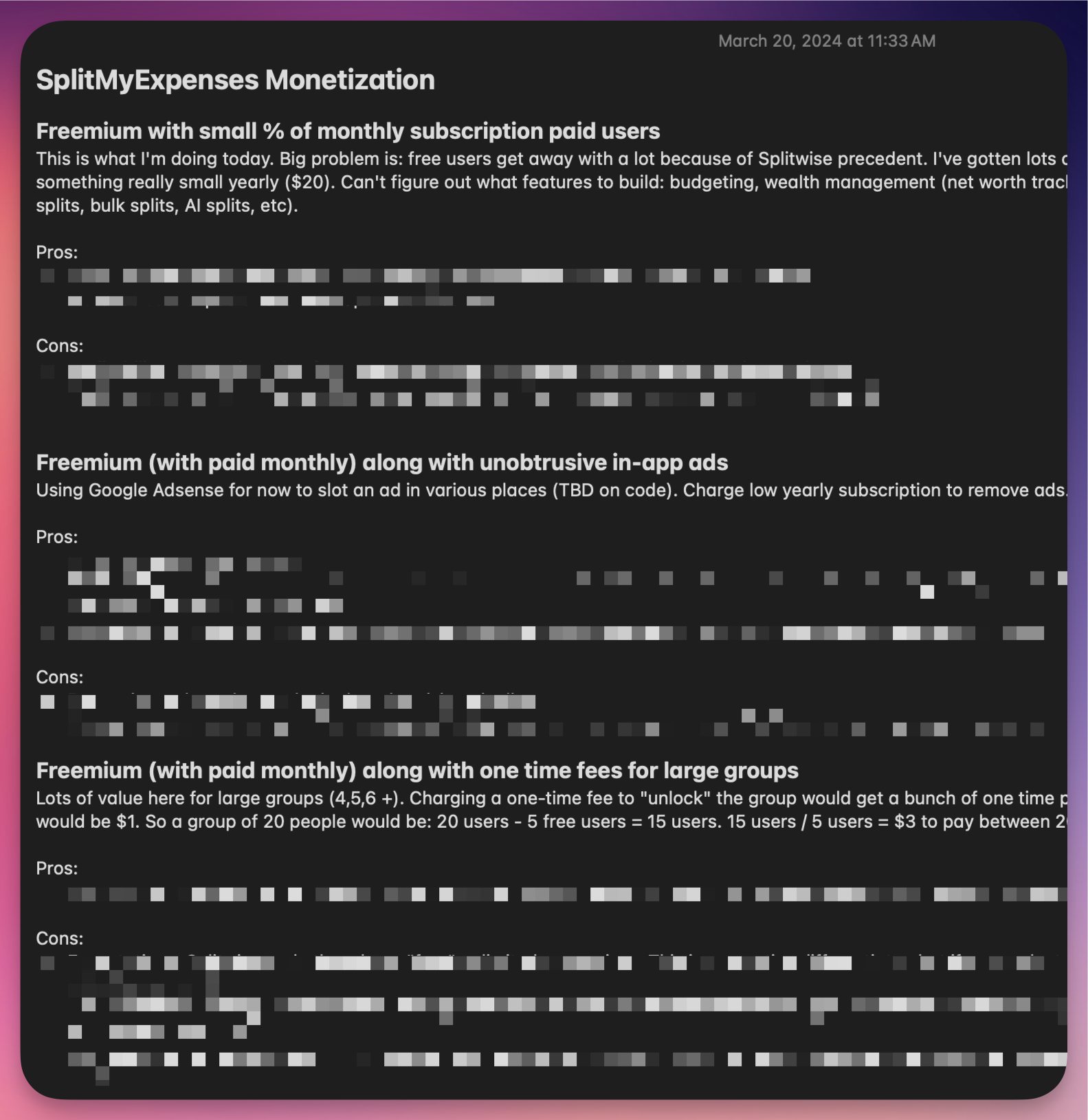
However, the more I thought about it, I get it: more people are on the go and it makes sense to have it. Will it 10x my profits? No, but I think it will complete the product in a sense where my users will be satisfied. Being laser focused on money is great and reasonable, but sometimes it can come to a fault too. Why would I build something that didn't make me money? Well, I do enjoy building it regardless, but it's also to round off SME to put it in a stable spot of maturity: iOS, Android, and web app, all with a high quality bar and something I'm personally proud of and happy to show off.
In May, I decided to start the journey of building a React Native codebase which would power both the iOS and Android apps, so I could learn the latest and greatest in cross platform frameworks and become more skilled! Worst case, I build out the mobile app, wrap up SplitMyExpenses and put it in a bug fixing mode. I'm pretty proud of how much it can do today already and the feature requests now are pretty nuanced. Not all software is bug free, and mine is no exception to that, so after the mobile app, I expect to be on bug fixing mode for a few months.
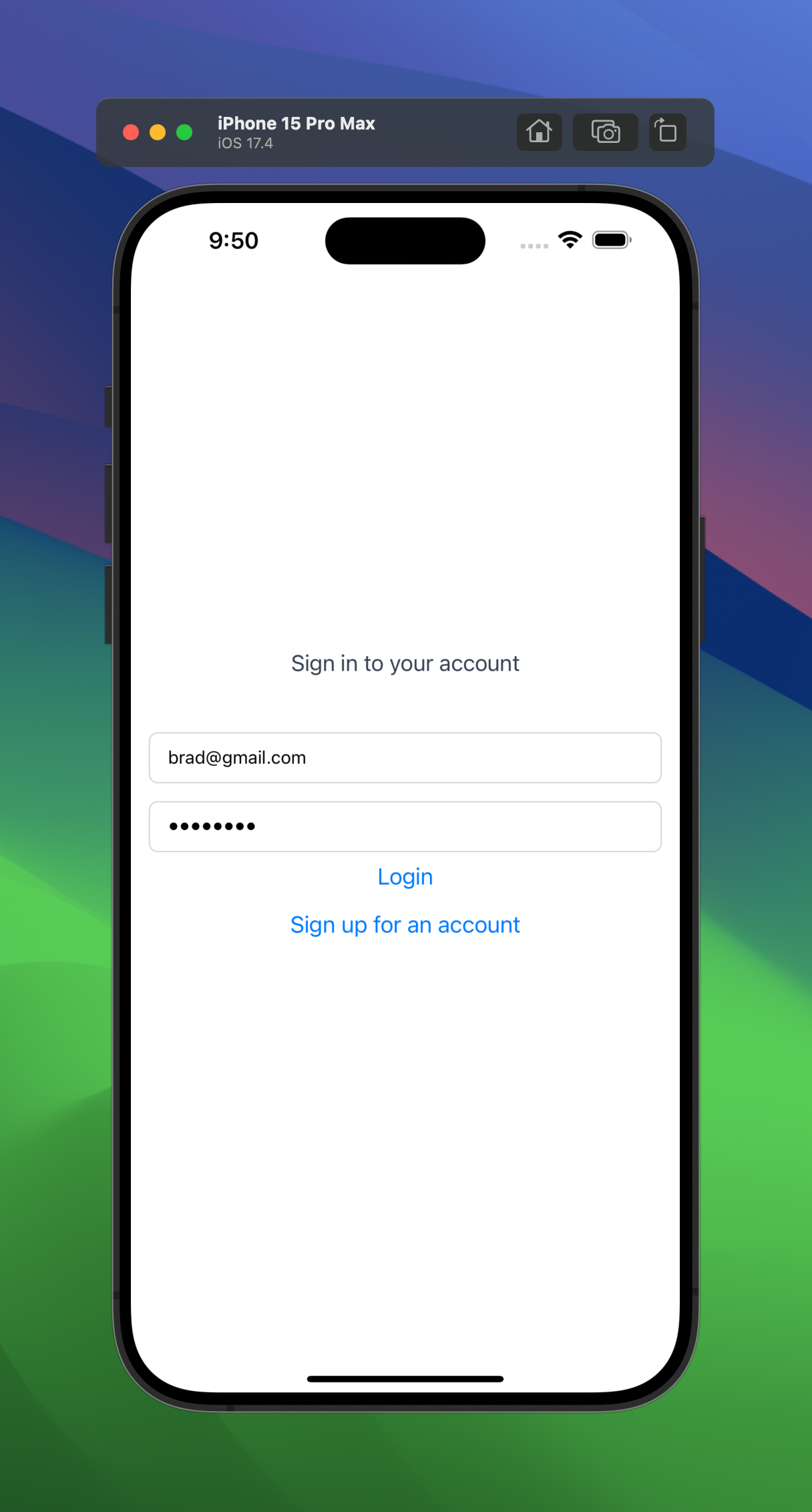
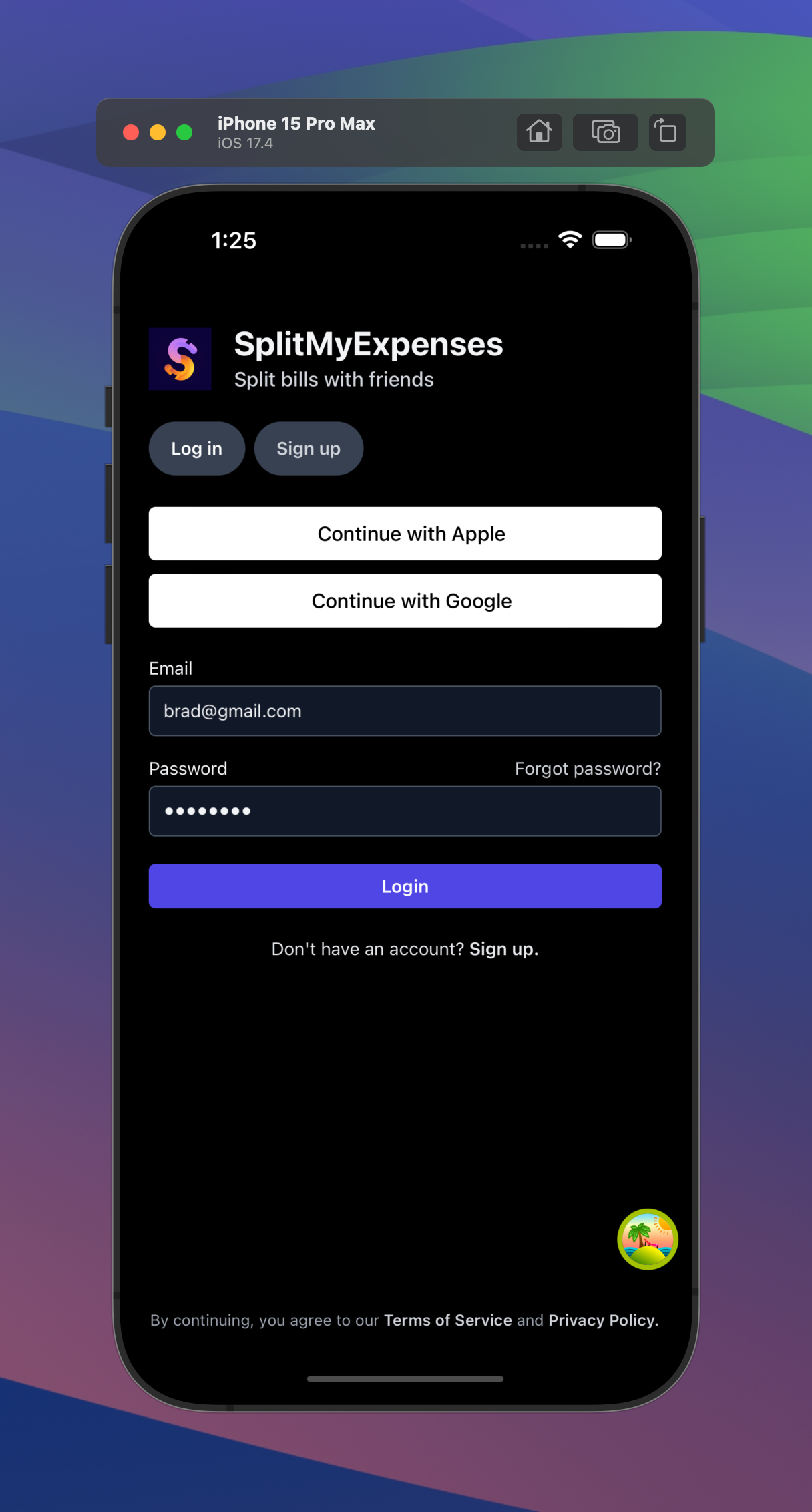
Looking back on it all...
It's insane to me that it has already been 12 months, what I had planned out to be my journey into entrepreneurship as a solo technical founder. I'm happy with what I've done, learned a ton about technologies, work life balance, mental health, stress management, prioritization, and finances, in a way I never could before. I put myself in uncomfortable positions on a frequent basis only to come out with a greater understanding of all things technical, product, marketing, legal, and support.
Pros
It's been a pretty damn fun ride, full of ups & downs, and I wouldn't trade it for anything. I've been lucky enough to have an opportunity in my life to dive into my own company, learn a ton, fail a ton, and become a better engineer, product mind, and marketer in the whole process. I've learned technical frameworks, worked with state of the art libraries, built modern full stack AI systems, studied monetization patterns, drafted drip email campaigns, iterated on design & logo creation. I can't list all the things I've learned, but I've shipped production apps to at least some scale, although nothing close to companies I've worked at previously.
Hearing customers fall in love with the product and rave about it to me feels so fulfilling. When you spend months and months of you time to try hard and build good software, hearing a simple comment about how it's helped people means a lot and I never got that feeling much at big companies.
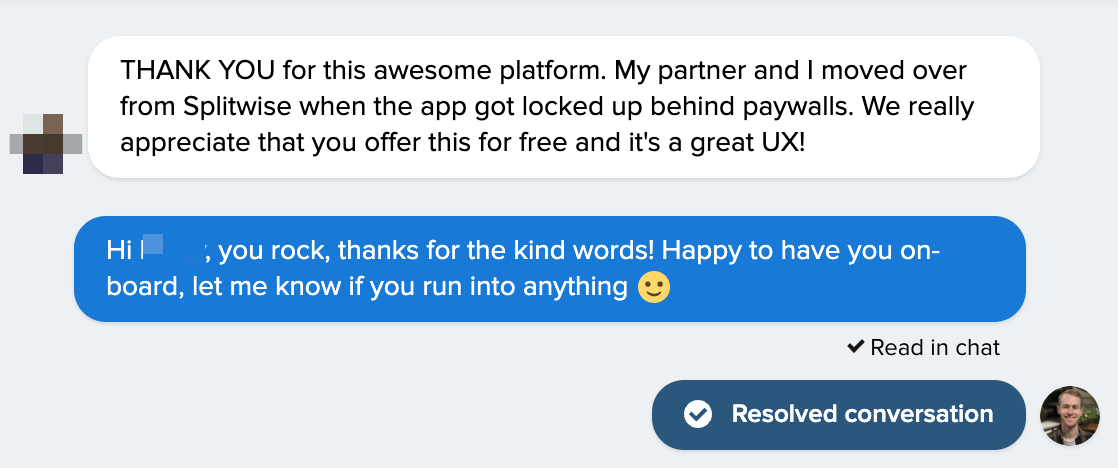
Cons
On the flip side, hearing free users complain about "missing" features or saying the site is broken (and give me a mini heart attack) stinks. I care about what I put out there and put an TON of time into it, only to hear oh it's missing X, Y, Z. I have pretty thick skin, but the more you care, the more you get hurt by comments, even if they aren't aimed to be attacks. I've "battled" with users online about freemium, pricing, feature set, limits, you name it. I've unfortunately had to put in extensive limits since folks try hard to get around basic things (like import date restrictions).
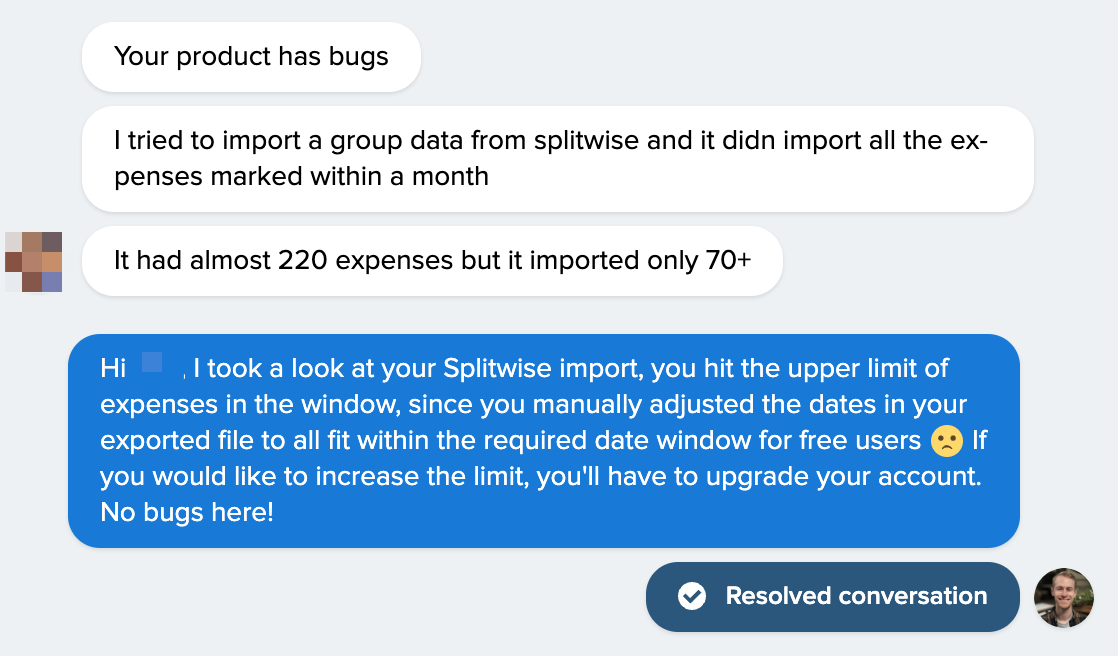
What I've learned: if you give a lot for free, people will keep pushing you for more. They'll also talk bad about me for charging money for things, sometimes I think they forget I'm trying to make a living from it! Huge lesson learned here, next time I'm doing B2B boring AI app :) B2C too hard...
Working by myself has been telling of what I'm looking for and how I operate best: having a team of folks to work/chat with on a daily basis is a pleasure! It can be very isolating to do it all on you own.
Monetization is HARD, building a good product that is profitable is DAMN HARD! I probably should have spent more time here thinking about what to build and my potential future customer, since SME is just in a tough spot there all things considered.
Life is expensive: affording California (Bay Area) rent is not a cheap expense when you make no money, so the financial pressure became extreme and changed how I looked at things both within the business and outside the business, but hard times spawn new outlooks, and you never know until you try.
Good things take time: you've only heard about products that have been around for YEARS, so you need to give yourself time. If that means taking money from the outside, it could be the move, but it all depends on your circumstances, life stages, and goals.
What's next?
I'll soon be launching my first ever Android app on the Google Play Store, which will be a huge achievement for me. SME iOS will be my second iOS app published under my company VuxByte. After the mobile apps are out, it means I'll have completed a full stack product with only one engineer, which is freakin sweet. I'm proud of what I've accomplished so far, but it hasn't always been easy and I've learned a ton of valuable and tough lessons along the way that'll help set me up for future success! Stay tuned :)
